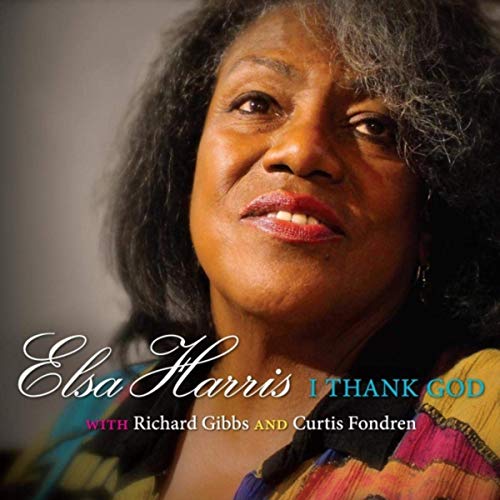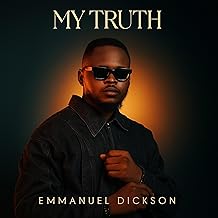 Elsa Harris
Elsa Harris
I Thank God
The Sirens (release date: March 15, 2019)
www.thesirensrecords.com
By Bob Marovich
Chicago is the birthplace of gospel music and, in many respects, it’s also the home of the genre’s most ardent preservation efforts. In addition to the forthcoming National Museum of Gospel Music, the vitality of traditional gospel in the Windy City can be heard on veteran gospel artist Elsa Harris’s mostly instrumental CD, I Thank God.
Harris’s piano proclivities, forged in the practice room as well as the church, recalls the jauntiness of traditional gospel, a distinctive sound too often obscured in the wake of today’s penchant for atmospheric, megachurch-filling rock-infused P&W anthems. Harris, on the other hand, sits at the piano and takes listeners back to the little wooden church on the hill (or on the block) with her rolling, hand-clapping old-school Baptist and Pentecostal style. This is especially evident on two of the CD’s medleys: “Glory Glory Hallelujah” / “Down at the Cross” and “What A Mighty God We Serve” / “Oh the Blood” / “Nothing But the Blood” / “There is Power.” The latter is a combination of congregational singalongs frequently used to open worship services.
Equally compelling and just as famous are Harris’s musical companions on I Thank God: organist Richard Gibbs and drummer Curtis Fondren. With skills honed in the music school called the African American church, Gibbs (the son of Inez Andrews and Soul Stirrer Richard Gibbs and, for eighteen years, pianist for Aretha Franklin) is just as dynamic and engaging in his keyboard work as Harris. Fondren, well-known in Chicago for providing percussion at such iconic institutions as Fellowship Missionary Baptist Church, Cosmopolitan Church of Prayer, and Christian Tabernacle, keeps a steady beat while employing his own toolkit of improvisation at strategic points.
A number of titles on the album hail from Harris’s tenure with Jessy Dixon and the Thompson Community Singers. Among these are Dixon’s “The Wicked Shall Cease from Troubling” (aka “Sit at His Feet and Be Blessed”) and the congregational favorite, “I Love to Praise His Name.” The title track, a piano-only cover of a song Harris did with the Tommies, is filled with thunderous arpeggios and graceful grace notes that transform the piano into a flatfooted church singer. Harris’s “Lord Don’t Move that Mountain” is a tribute to Gibbs’ mother, the late Inez Andrews, who propelled Doris Akers’ composition to national prominence in 1972.
Ironically, where the trio offers more of a contemporary flair is on the oldest song on the album, the spiritual “Joshua Fit the Battle.” For “Down by the Riverside,” Harris and Company borrow from a favorite arrangement of gospel choirs, one that contains a section which, when sung, is a rapid-fire repetition of the song’s title.
Harris sings on only one track, the bluesy “Looking for Trouble,” which uses Muddy Waters’ stop-time technique from 1955’s “Mannish Boy.” I wish she had sung on more selections; as a vocalist, Harris has plied her trade not only in gospel but, as a background singer, for the likes of Minnie Riperton and Phil Upchurch. Moving from “Trouble” to an introspective medley of church chestnuts “I Need Thee” / “How Great Thou Art” demonstrates not only Harris’s eclectic tastes but the conundrum of musical classification.
As with other releases from Steven Dolins and The Sirens, the production for I Thank God is crystal clear, letting all the little light from the keys shine. Fans of traditional gospel music should thank God for Elsa Harris.
Check out my interview with Elsa Harris:
Four of Five Stars
Picks: “What a Mighty God” medley, “Down by the Riverside”
Written by : Bob Marovich
Bob Marovich is a gospel music historian, author, and radio host. Founder of Journal of Gospel Music blog (formally The Black Gospel Blog) and producer of the Gospel Memories Radio Show.











 Visit Today : 10
Visit Today : 10 This Month : 163
This Month : 163